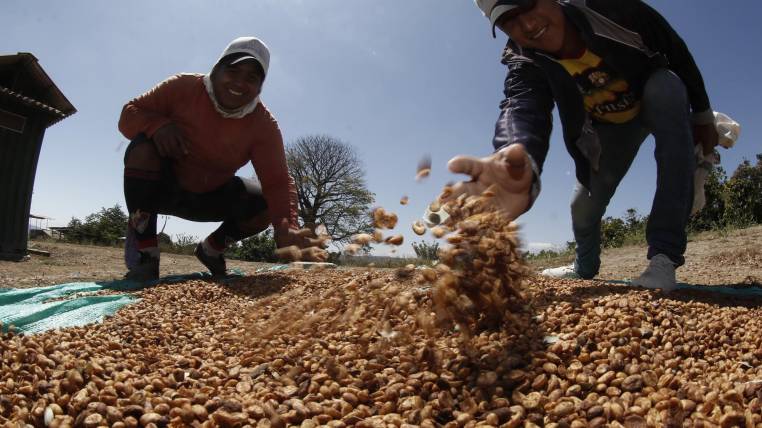The coffee that the Government discarded, the best in the country
Ecuadornews:

They promised to buy the plants to disseminate coffee. It was on the verge of closing by unpaid bills of the Government of Rafael Correa and that still are not solved either.
But Joseph Massoud had great news on Friday: two of his samples won the first and second place in the Golden Cup of robusta coffee competition in Ecuador and that open the possibility of reaching a world that demands higher quality and brand of origin.
The ex-manager of the Elaborated Company Elcafé (Grupo Noboa) and that today represents a Swiss company in the division of soluble coffee worldwide tells EXPRESO how to reach the levels of quality and high productivity in San Juan on the way to Beaches.
The price: 3.20 and 3.10 dollars per pound, compared to 70 or 80 cents paid by an ordinary robusta. Although lots located in the top ten achieved up to 3.45 per pound.
Those who bought the winning production were Miguel Meza, from Paradise Coffee, of Hawaii; Iven Van Geenhover, from Chromatic Coffee of San José, California; and, Wilson Yánez, on behalf of Quijote El Kaffee, from Germany.
“The international judges have valued what is done in Ecuador, the Robusta Cup Golden Competition is unique in the world as well as the quality achieved”, says Pablo Pinoargote, manager of the National Association of Coffee Exporters of Ecuador (Anecafé), organizer of the event.
The other eight places were won by farmers from the Ecuadorian East, over 300 meters above sea level, which is where the robust variety has traditionally been produced.
These only showed washed coffee, while the winner of the first two sites used the honey system (drying with the mucilage on platforms) and the fermentation for 24 hours. Its characteristics: peach flavor, spices, wine, juicy, toasted almond, cane honey, tamarind, ginger, floral, ripe tropical fruits, strawberry, citrus, blackberry, tangerine, apple, chocolate, green grape, blueberries, kiwi, currant green, sweet caramel, pineapple jam, prune, strawberry.
What is produced in the San Juan campus (San Antonio), has accumulated 5 years of development of a project that started with a Brazilian technician.
Of all, the six were the promising or “champions” that have the possibility of reaching 140 quintals per hectare.
In Guayas and Santa Elena, several robusta coffee projects were started that were not supported by the previous government. The regime of Rafael Correa promised to lend money to small producers to undertake this type of plans, but they did not materialize.
Other projects with good results in productivity and quality also remained in limbo or closed.
Drying and zone, the keys
What did you do to win the first two places of Robust Golden Cup?
We are at sea level and a land with vein of lime. The lime promotes the degree brix (sweetness) apparently and sweetened a bit this coffee that is bitter; not only do we have good material, but also the earth, a different climate and a post-harvest that gives it new conditions. I tried this coffee differently to dry it progressively.
Was it dried pulped (on wooden beds and nets), but along with what it has between the grain and the shell?
I do this because I felt that the robusta coffee is a bit bitter; I put it like that so it becomes sweeter. These two samples, which they won, were of two different parts with two different processes, the score was 84.95 and 84.80. Ten points to be like a super special coffee.
He said he had no support, but obstacles, during the government of Rafael Correa
I brought the best clones from several countries (Vietnam, Brazil) between 2011 and 2013; it took me a year to bring about the obstacles of the previous government. I did the experiments in La Clementina (Los Ríos); with those best coffees in the world I made a park of 11 hectares. (I)
Source: https://www.expreso.ec/economia/cafe-agricultura-exportaciones-productores-economia-CY2346848





